
SLI Events
Past STEM Equity Seminars for Owls
School Year 2022-23 Talks
Jennifer Ortiz Cardenas: Microfluidics as a vehicle to increase equity, diversity, and inclusion in STEM - 10/21/22, 1pm - 2:30pm
 During this talk, Dr. Ortiz Cárdenas will share how she went from being born and raised
in Luquillo, Puerto Rico to her current position at the Stanford Microfluidics Foundry.
She will discuss her thesis work on integrating 3D cultures in microfluidic devices,
lessons learned from nearly a decade in academic and research environments, and the
programming available for community college students to become involved in microfluidics-based
research opportunities.
During this talk, Dr. Ortiz Cárdenas will share how she went from being born and raised
in Luquillo, Puerto Rico to her current position at the Stanford Microfluidics Foundry.
She will discuss her thesis work on integrating 3D cultures in microfluidic devices,
lessons learned from nearly a decade in academic and research environments, and the
programming available for community college students to become involved in microfluidics-based
research opportunities.
Dr. Jennifer Ortiz Cárdenas is the Director and Outreach Coordinator of the Microfluidics Foundry at Stanford University. She received her B.A. in Chemistry from Binghamton University and earned her Ph.D. in Chemistry at the University of Virginia under the supervision of Dr. Rebecca R. Pompano. In her research, she developed biomimetic photo-patterned 3D cultures to recreate the spatial organization of tissue on microfluidic chips. In her current role, she is in charge of the Microfluidics Foundry and supports nearly 30 users in integrating microfluidics in their research. Additionally, she is passionate about improving diversity and inclusion in STEM and has developed outreach programming to increase the representation of Latinx and other URM’s in the microfluidics field.
Pizza lunch before event from 12 - 1pm in the PSEC quad.
Sofia Sheikh: Forging a career in the Search for Extraterrestrial Intelligence (SETI) - Fri 12/2/22, 11am - 12:30pm
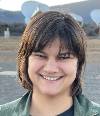
Dr. Sofia Sheikh is an NSF-ASCEND Postdoctoral Fellow working on the Allen Telescope Array (ATA) at the SETI Institute. She earned her undergraduate degrees in Physics and Astronomy from UC Berkeley in 2017, and her dual-title PhDs in Astronomy and Astrobiology in 2021. In her current position, she primarily uses the ATA to search for radio-wave "technosignatures" from extraterrestrial life, while also running experiments on more-typical astronomical objects such as pulsars and fast radio bursts.
Chipotle burrito lunch after event in the PSEC quad.
School Year 2021-22 Talks
Spring 2021 Talks
STEM Resources & OpportunitiesSign up to receive emails about internships, scholarships, conferences, and other opportunities for students in STEM. |

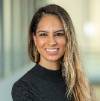
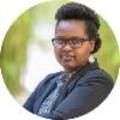 Born in in Burundi, Dr. Mireille Kamariza faced many barriers to becoming a scientist.
It was only after immigrating to the United States and later when she started her
undergraduate schooling at San Diego Mesa College that her scientific journey began.
Given her background and personal interests, Dr. Kamariza's scientific research has
since grown to focus on tackling important questions in infectious disease research,
especially those that may have direct impact in her country of origin.
Born in in Burundi, Dr. Mireille Kamariza faced many barriers to becoming a scientist.
It was only after immigrating to the United States and later when she started her
undergraduate schooling at San Diego Mesa College that her scientific journey began.
Given her background and personal interests, Dr. Kamariza's scientific research has
since grown to focus on tackling important questions in infectious disease research,
especially those that may have direct impact in her country of origin.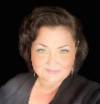 Dr. Wendy Todd (Smythe) is an Assistant Professor at the University of Minnesota Duluth
and holds a joint appointment between the Departments of American Indian Studies and
Earth & Environmental Sciences. She was the 2019 Professional of the Year by the American
Indian Science and Engineering Society (AISES) for her interdisciplinary research
in geoscience, Native Education, and policy, in 2020 she was elected to the AISES
Board of Directors. She was just awarded the Dr. Henry Higholt Endowed Professorship.
Dr. Todd is Alaska Native Haida.
Dr. Wendy Todd (Smythe) is an Assistant Professor at the University of Minnesota Duluth
and holds a joint appointment between the Departments of American Indian Studies and
Earth & Environmental Sciences. She was the 2019 Professional of the Year by the American
Indian Science and Engineering Society (AISES) for her interdisciplinary research
in geoscience, Native Education, and policy, in 2020 she was elected to the AISES
Board of Directors. She was just awarded the Dr. Henry Higholt Endowed Professorship.
Dr. Todd is Alaska Native Haida.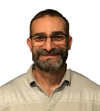 Frank Cascarano is a physics instructor at Foothill where he has been teaching since 2003. He did
his undergraduate studies at UC Davis in physics and received an M.S. degree from
UC San Diego, also in physics. Before coming to Foothill, Frank taught Physics and
Astronomy at Hartnell College in Salinas, and prior to that he worked for ten years
as a Process Engineer and Manager in the semiconductor industry. Frank’s interests
include cooking, beermaking, woodworking, home improvement projects, and watching
his sons play roller hockey.
Frank Cascarano is a physics instructor at Foothill where he has been teaching since 2003. He did
his undergraduate studies at UC Davis in physics and received an M.S. degree from
UC San Diego, also in physics. Before coming to Foothill, Frank taught Physics and
Astronomy at Hartnell College in Salinas, and prior to that he worked for ten years
as a Process Engineer and Manager in the semiconductor industry. Frank’s interests
include cooking, beermaking, woodworking, home improvement projects, and watching
his sons play roller hockey.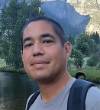 David Marasco has taught physics at Foothill since 2004. He did his undergraduate studies at UC
San Diego in physics and philosophy and went on to Northwestern for his Ph.D.
David Marasco has taught physics at Foothill since 2004. He did his undergraduate studies at UC
San Diego in physics and philosophy and went on to Northwestern for his Ph.D.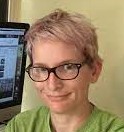 I received my BS in Physics from the University of Texas in 2001, and my PhD in Physics
from the University of Michigan in 2009. For my PhD thesis, I studied Optical afterglows
of Gamma-Ray Bursts, but also spent a lot of time writing code for the reduction pipeline
for robotic telescopes and for an instrument mounted on one of the telescopes in Hawaii.
For my first postdoc, I worked on the data reduction pipeline for the Pan-STARRS telescope,
which at the time had the world's largest camera used for astronomy, with 1.4 Gigapixels.
During my time in Pan-STARRS, I helped to design, test, and built the schema and database
for the now publicly available Pan-STARRS database. This database is the largest astronomical
database for a single telescope, with >6 billion objects, in 5 filters, and covering
3/4 of the sky. I also mined the Pan-STARRS data to find new and exciting variable
stars. Later, I worked as a postdoc for the ATLAS project, where I helped with their
pipeline and helped to find new near earth asteroids as well as new comets. I recently
started a new position at Canada-France-Hawaii Telescope, as an instrument scientist,
where I help with the queue scheduling, and making sure the images from the MegaPrime
Imager are reduced quickly and accurately.
I received my BS in Physics from the University of Texas in 2001, and my PhD in Physics
from the University of Michigan in 2009. For my PhD thesis, I studied Optical afterglows
of Gamma-Ray Bursts, but also spent a lot of time writing code for the reduction pipeline
for robotic telescopes and for an instrument mounted on one of the telescopes in Hawaii.
For my first postdoc, I worked on the data reduction pipeline for the Pan-STARRS telescope,
which at the time had the world's largest camera used for astronomy, with 1.4 Gigapixels.
During my time in Pan-STARRS, I helped to design, test, and built the schema and database
for the now publicly available Pan-STARRS database. This database is the largest astronomical
database for a single telescope, with >6 billion objects, in 5 filters, and covering
3/4 of the sky. I also mined the Pan-STARRS data to find new and exciting variable
stars. Later, I worked as a postdoc for the ATLAS project, where I helped with their
pipeline and helped to find new near earth asteroids as well as new comets. I recently
started a new position at Canada-France-Hawaii Telescope, as an instrument scientist,
where I help with the queue scheduling, and making sure the images from the MegaPrime
Imager are reduced quickly and accurately.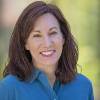 Shoshanah Cohen, Director of Community Engaged Learning in Engineering, received her BS in Industrial
Engineering from Stanford as well as an MA in Technology Strategy from Boston University
and an MBA from Harvard Business School. She started her career working in manufacturing
and spent more than 20 years in the field of global operations before moving to academia.
Shoshanah Cohen, Director of Community Engaged Learning in Engineering, received her BS in Industrial
Engineering from Stanford as well as an MA in Technology Strategy from Boston University
and an MBA from Harvard Business School. She started her career working in manufacturing
and spent more than 20 years in the field of global operations before moving to academia.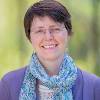 Esther Conrad, Director of Community Engaged Learning for Environmental Sustainability, received
her undergraduate degree in Earth Systems at Stanford, and has worked on environmental
and international development issues for over 15 years. She completed her Master’s
degree in International Affairs at Columbia University and her PhD in Environmental
Science, Policy and Management at UC Berkeley, where her research focused on policies
to support sustainable water management and adaptation to climate change.
Esther Conrad, Director of Community Engaged Learning for Environmental Sustainability, received
her undergraduate degree in Earth Systems at Stanford, and has worked on environmental
and international development issues for over 15 years. She completed her Master’s
degree in International Affairs at Columbia University and her PhD in Environmental
Science, Policy and Management at UC Berkeley, where her research focused on policies
to support sustainable water management and adaptation to climate change.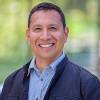 Jorge De Luna, Director of Community Engaged Learning in Health, holds a BS in business management
and a master of public health degree, both from San Jose State University. Jorge’s
experience in healthcare spans over twenty years of successful work as a business
manager and consultant, program director, and health educator.
Jorge De Luna, Director of Community Engaged Learning in Health, holds a BS in business management
and a master of public health degree, both from San Jose State University. Jorge’s
experience in healthcare spans over twenty years of successful work as a business
manager and consultant, program director, and health educator.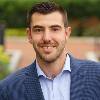 Dr. Lopez received his BS in Chemistry from New York University and his Ph.D. in Computational
Organic Chemistry from UCLA . He completed a postdoc at Harvard in Computational Chemistry
and then started at Northeastern University in 2017. Dr. Lopez's group focuses on
using computational chemistry and machine learning to understand light-driven processes
in molecules and materials towards sustainable chemistry and energy. They’ve published
15 papers since he arrived at NU and raised 1.8M in external funding. Dr. Lopez is
also the Founder and Director of ADSE, a national non-profit organization focused
on increasing diversity and inclusion across Science and Engineering from community
colleges to professional research careers.
Dr. Lopez received his BS in Chemistry from New York University and his Ph.D. in Computational
Organic Chemistry from UCLA . He completed a postdoc at Harvard in Computational Chemistry
and then started at Northeastern University in 2017. Dr. Lopez's group focuses on
using computational chemistry and machine learning to understand light-driven processes
in molecules and materials towards sustainable chemistry and energy. They’ve published
15 papers since he arrived at NU and raised 1.8M in external funding. Dr. Lopez is
also the Founder and Director of ADSE, a national non-profit organization focused
on increasing diversity and inclusion across Science and Engineering from community
colleges to professional research careers.